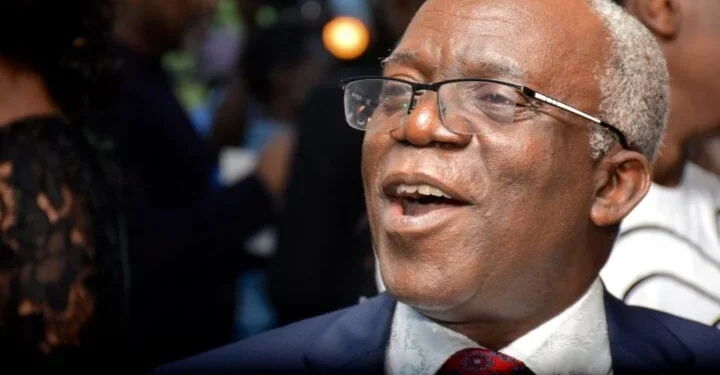Femi Falana is not the kind of man to waste word, when he speaks, it usually means the system has crossed a line. This time, his anger is directed at Dangote Refineries, accusing the billionaire of trying to drag Nigerian workers back into colonial-style slavery. And honestly, the issue is bigger than just union membership papers, it’s about how much power one man can wield over the lives of thousands in a country that already feels captured by monopoly.
The Union Question That Refuses to Die
The whole fight began when Dangote’s company allegedly told new drivers to sign papers agreeing never to join unions like NUPENG. That’s not just a policy, that’s a direct attack on workers’ rights. Section 40 of Nigeria’s Constitution guarantees freedom of association. International labour conventions say the same. Even Britain, under colonial rule, couldn’t stop Nigerian workers from unionising. So why should Dangote in 2025?
It’s no wonder NUPENG is threatening a strike. To them, this isn’t just about contracts. It’s about survival. If drivers can’t unionise, then what stops Dangote from cutting wages, increasing hours, and punishing dissent? That’s why Falana is comparing it to colonial slavery, it’s the same logic of control.

Monopoly in Everything
What makes this worse is that Dangote is not just another businessman. He already controls cement, sugar, salt, and now petroleum. Every time government bends rules for him, small businesses die. Now, with a refinery worth $20 billion, he wants to control not only how fuel is produced but also how it is transported, who drives the trucks, and whether they can complain about working conditions.
This is how monopolies become dangerous, they don’t stop at markets, they begin to invade freedoms. Falana calling this out is not just legal talk, it’s a warning that Nigeria is slowly sliding into an economy owned by one man.
Government Caught in the Middle
Falana has challenged the Federal Government to act. But here’s the irony: government loves Dangote. Successive administrations have treated him like an untouchable partner, offering tax breaks, concessions, and protection. Will they now suddenly grow the spine to confront him over union rights?
This is the same government that barely enforces labour laws, that allows strikes to drag for weeks without solutions. If it sides with Dangote, it means workers are on their own. If it sides with Falana and the unions, it risks clashing with the richest man in Africa.
Why This Fight Matters
Some people will say, “but Dangote built the refinery, he should run it how he likes.” That’s a dangerous argument. A refinery is not a private club; it’s part of a national economy. Its workers are citizens with rights. If one man is allowed to strip them of those rights, what message does that send to other companies? That workers in Nigeria can be treated as disposable?
Falana’s reminder that Nigerian workers fought and won the right to unionise under British rule is not nostalgia, it’s history repeating itself. The sad irony is that colonial masters once denied these rights, and now a Nigerian billionaire is accused of doing the same.
Final Word
Falana slams Dangote and calls this new anti-union policy a return to “colonial slave rules.” Harsh words, yes. But maybe that’s what it takes to wake people up. Nigeria is already under economic hardship, fuel prices keep climbing, and ordinary people are squeezed. If workers are silenced on top of that, then we are not far from modern-day slavery disguised as business efficiency.

















